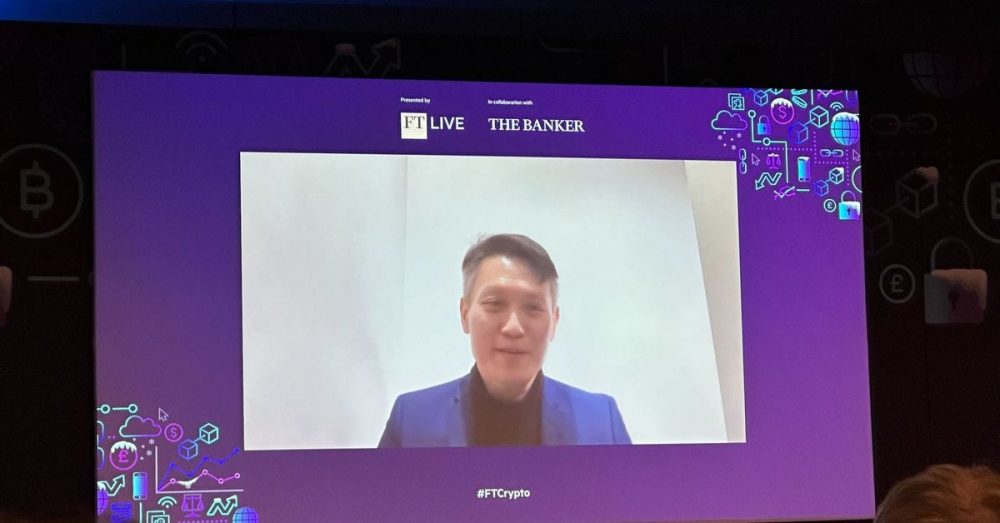New Binance CEO Richard Teng’s debut on center stage was a bit bumpy.
In his first public interview since getting the job last month after founder Changpeng “CZ” Zhao was formed to step down amid a $4.3 billion legal settlement with the U.S. government, Teng said Binance’s compliance systems were inadequate in the past and that mistakes were made. But Teng, who has held senior positions at Binance for several years, refused to give answers about the company’s governance.
Moderator Scott Chipolina, The Financial Times’ digital assets correspondent, repeatedly asked Teng simple questions about Binance, which Teng seemed to avoid answering. While Chipolina was in London, Teng appeared remotely via video.
“I’ve asked you where Binance’s global headquarters is, I’ve asked you whether Binance is going to undergo an audit, how many employees the company currently has on its books and whether you’re applying for a license in the UK, which is what Binance told us during our last FT crypto conference. You haven’t answered those questions,” Chipolina said after repeatedly trying to get an answer from Teng.
“I have answered each and every one of those questions,” said Teng, who seemed to lose patience.
“Can you tell me where Binance’s headquarters are?” he was asked again.
“It is under consideration,” Teng responded.
Even when asked about the future of Binance, and how the company will change under its new leadership, the new CEO remained vague. “A lot of things will change,” he said before starting to talk about the landscape of the industry.
Teng became the new head of the exchange a few weeks ago after its founder and former CEO Changpeng “CZ” Zhao stepped down from the position following a settlement with the U.S. Department of Justice, which had accused the exchange of breaking sanctions and money-transmitting laws.
Teng started his interview with what seemed to be a prewritten statement, saying that “mistakes were made” and that the compliance control that Binance had in place was “inadequate” for its size. Going forward, the exchange wants to be a “user-led” as well as a “compliance-led” organization, Teng said in his remarks.
When asked if the exchange would undergo an audit soon, he said that because Binance is a private company and is not raising any funds publicly, it is “not obligated to disclose those facts,” but that its auditors have that information.
“Well, I’m not sure if that answers the question directly,” Chopolina said, asking again if the company is going to undergo an audit.
“We have been undergoing audits in all the regulated jurisdictions that we are in,” Teng said, but when asked to name a specific auditor, he wouldn’t do so.
At the end of the interview, Chopolina gave Teng one more chance to answer a few of the questions about Binance’s governance in order to ensure more transparency for users.
“Can I just check with you, why do you feel so entitled to those answers?” Teng said, slowly starting to show an attitude.
“Well, Binance is the biggest crypto exchange and it’s important that we know that,” Chopolina said.
“It is,” Teng said. “And we are accountable to our users and users knowing that we are totally accountable to them.”







